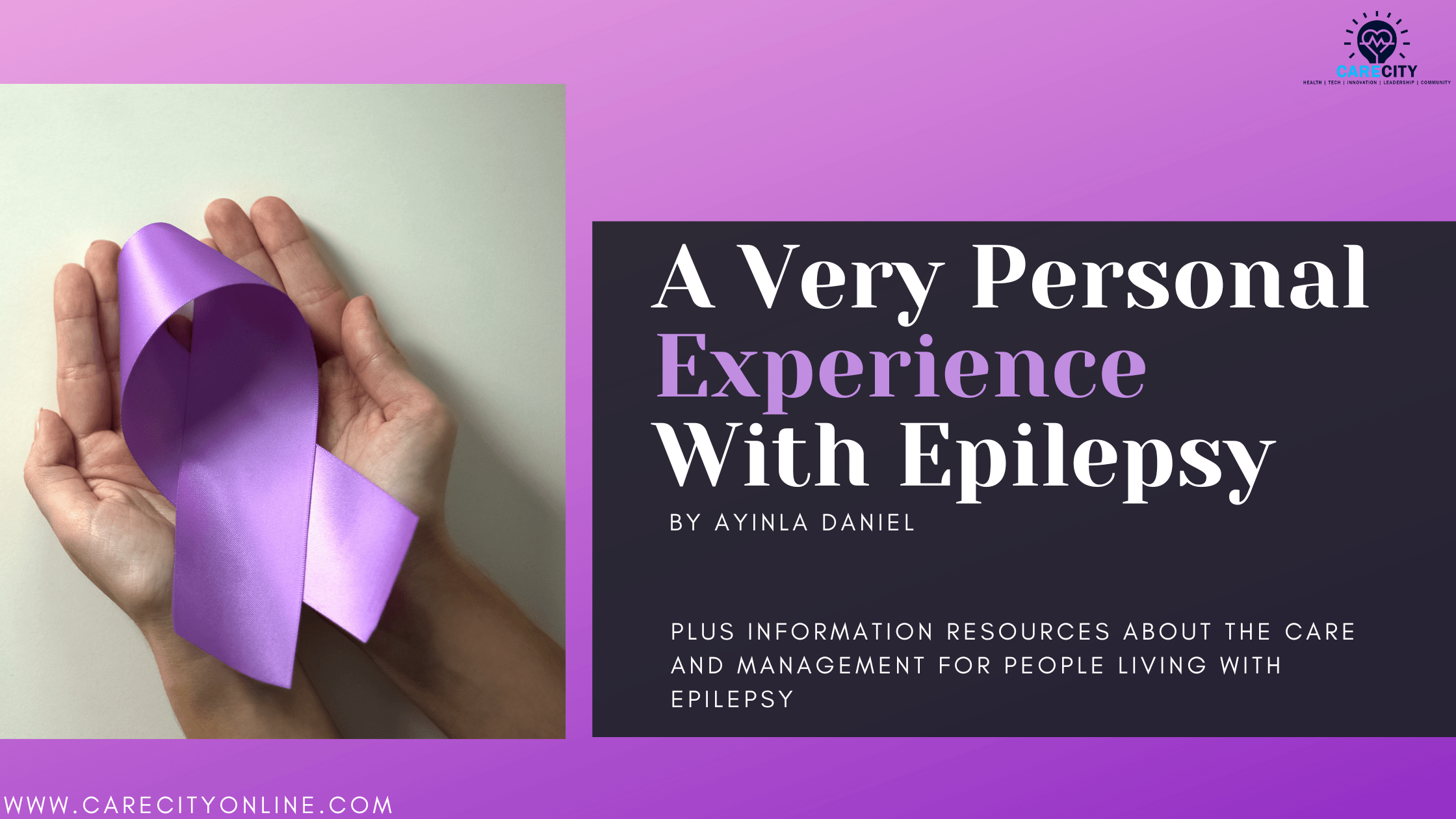“Epilepsy is more than seizures.”
It was “purple day” a few days back [February 13th]. A day set aside by the world epilepsy foundation to spread awareness about the neurological disorder.
And I am taking it a bit personally because I have experienced first-hand what it looks like to carry the stigma caused by being epileptic.
Well, not me, but I remember when I was much younger, maybe when I was twelve or thirteen. There was a mate of ours. His name was Earnest.
Earnest was a taciturn, silent and lonely fellow —a dark-skinned, always sweaty, chubby young man who had no friends [memories of him are becoming more pronounced in my mind since I started thinking about him on world epilepsy day].
He walked alone to the stock shop when it was time for break [recess] and would sit all by himself during sporting and other social activities.
No one wanted to be too close to this shy, calm young man. And the reason?
He had Epilepsy.
I saw him fit once in public, and it was a terrifying and worrisome sight to behold, the jerky movements foaming from the mouth and falling like a log to the hard ground —people gathering around him to watch [and not help]. When the convulsing episode was over, he stood up as if nothing had happened, brushed his uniform and moved on, with minor bruises and bloody patches on his face because of the fall.
This scene somehow found a safe spot to hide in my curious brain.
I didn’t know too much about what the school’s health team did for him at that time, but I was aware of how this young interacted with the social environment—he was isolated.
I know that one of the reasons why people avoided Earnest back then in school was that they thought Epilepsy was contagious. They thought they could “catch” it if they were too close to someone who has it —and also coupled with the cultural belief most black folks have, attaching it to the works of demons or evil spirits —remember the boy in the bible, who was brought to Jesus to be saved, the father crying that the devil sometimes threw him into the fire and the water? Not sure. I think it was Epilepsy—just my little theory.
Over the years, the care of Epilepsy has tremendously improved, and we have been able to some extent educate the general public about the cause, management and care of Epilepsy.
We hardly see people falling on the streets these days, convulsing, jerking and foaming from the mouth. I have not seen anyone since my encounter with Earnest in more than 17 years. But there’s still a wide gap in the developing worlds and even in more developed regions.
“Across the world, people with Epilepsy continue to be the targets of stigma, discrimination, and human rights violations. As a result, they frequently face barriers to education and employment and are effectively prevented from full participation in social and community life.”
World Health Organization.
SUDEP – Sudden Unexpected Death In Epilepsy: Information, Resources And More
Briefly, What Is Epilepsy?
Epilepsy is a neurological disorder of the central nervous system [specialized areas in your brain] in which brain activity becomes disturbed, resulting in seizures [sudden uncontrolled electrical disturbance in the brain, which can cause involuntary movements, and sometimes loss of consciousness].
Epilepsy is a non-communicable disease, which means unlike diseases like Tuberculosis, Corona Virus that are contagious. Epilepsy is not contagious [read that sentence again, and again, and again].
You can’t “CATCH” Epilepsy by shaking hands, eating with the same plate, or sleeping on the same bed as people living with Epilepsy.
Several factors can cause it, or someone can be predisposed to developing Epilepsy due to their lifestyle, consumption of drugs, and other internal biological and physiological factors.
Well, this is actually not a clinical or healthcare article; it’s a social campaign article, so we won’t be talking too much about pathophysiologies, biology and physiology.
I will just stick to telling you why we need to bring our hands, hearts and heads together in the fight against epilepsy, and I also included tons of information, resources, and more that will help you learn more about epilepsy.
“Epilepsy is the fourth most common neurological disorder in the world. If you have epilepsy.” -Epilepsy Foundation.
New To Seizures and Epilepsy? Check Here…
The “Right” Information Is Key

Today’s world moves on the wheel of information—true or false information.
Countries, economies, regions, families, individuals and organizations rely on information for their day-to-day activities. That’s why communication technologies have become a vital aspect of humanity.
In the healthcare ecosystem, our most powerful strategy in helping improve community health is to ensure we expose people to accurate information.
Exposing the local population to the correct information supported by thorough research has been a public health strategy used to make them aware of the harm caused by destructive healthcare practices over the years, especially in Africa, where a variety of such practices have wreaked havoc on communities and are planted deep in culture, traditions, and ancient spiritual beliefs.
In the fight against epilepsy [and any disease], we must continually communicate the right information with people.
Let them know that:
- Epilepsy is not contagious.
- Epilepsy can be treated, and they can live seizure-free healthy lives.
- Epilepsy medications are easy to come by in the market and are affordable.
- They can be connected to Epilepsy social support groups wherever they are [online and offline].
- They don’t have to suffer in the shadows, and help and support await them in the light.
We have packed this article with a lot of information [from the right sources] about epilepsy.
If you know anyone [or group] that will benefit from it, kindly join the fight against epilepsy by sharing it with them and on your social media pages.
Learn About Epilepsy
What Is Epilepsy?
Causes of Epilepsy
Diagnosing Epilepsy
Treating Epilepsy
Complications And Risks
Resources To Help
Find Epilepsy Centers
Epilepsy Medications
Tools And Forms
Seizure First-aid Resources
Lifestyle And Communication Tool-kit
Wellness Support Tools
Epilepsy Related Organizations
Non-medical Treatment Factsheets
SUDEP [Sudden Unexpected Death In Epilepsy] Resources
Facts About Epilepsy
- 65 million people around the world live with #epilepsy.
- 3.4+ million people in the U.S. live with #epilepsy.
- 1 in 26 people in the U.S. will develop epilepsy at some point in their lifetime.
- 4 to 10 out of 1,000 people on earth live with active #seizures at any one time.
- 150,000 new cases of #epilepsy are diagnosed in the U.S. each year.
- One-third of people with #epilepsy live with uncontrolled #seizures because no available treatment works for them.
- For 6 out of 10 people w/ epilepsy, the cause is unknown.
- Each year, more than 1 in 1,000 people with epilepsy die from sudden unexpected death in epilepsy, known as SUDEP.
- 4 out of 10 people with #epilepsy in the industrialized world do not receive appropriate treatment.
- 8 out of 10 people with Epilepsy in developing nations do not receive appropriate treatment.
Source: Epilepsy Foundation.
Here at Care City, we understand the power of information and how it can build people, families, organizations and nations.
We are dedicated to creating, curating and spreading the right information, and our focus is on leadership, innovation, entrepreneurship and creativity in healthcare.
If you spot anything that looks or sounds “out of the normal” or “extreme”, or “biased” kindly reach out to us, and we will immediately look into it [please use the contact box in the header or footer section].





